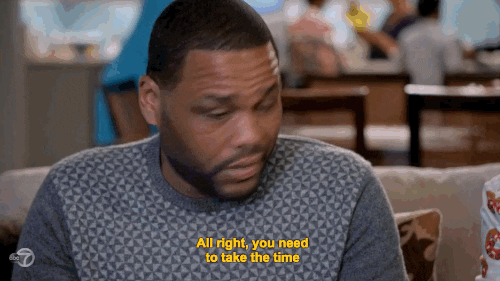How Black Students Can Take Care of Their Mental Health
24/7 news coverage of police brutality, COVID-19, and other recent events have taken a toll on everyone, particularly low-income and black students. If you’re a black student and you’ve felt more stressed, anxious, or depressed recently, know that you’re not alone.
Mental health issues are common, and many people struggle with them. Chrissy Teigen, Kendrick Lamar, and Zayn Malik have all said that they dealt with mental health issues ranging from clinical depression to eating disorders.
Many celebrities are strong mental health advocates as well. Logan Browning regularly promotes taking care of your mental health and holds guided weekly meditation sessions on Instagram Live. Taraji P. Henson started an organization in honor of her late father, The Boris Lawrence Henson Foundation, to end the stigma around mental health. This Ted Talk ties mental health issues directly to diseases that are likely to develop as a result of trauma.
Convinced that mental health is important? We definitely are!
For guidance on how black students can care for their mental health, we sought advice from mental health professionals and teachers. We then chose resources and strategies that are most pertinent to the experiences of black students and accounted for individual as well as community needs. Thank you to my generous friends and colleagues Abram Summers, a teacher at the Creative Arts Charter School, and mental health professionals Theresa Cao, PsyD, Dominic Dawkins, MD, and Allain Francisco, MD, for giving your time and expertise to help us understand the issue.
Understanding Mental Health
You think something in your mood and behavior has recently changed, but what does that mean? Mental health problems fall under such a wide umbrella of symptoms that it can be tough to know exactly what you are experiencing. If you don’t know what mental health issue is affecting your life, you can start by watching a few videos to start to understand what symptoms fall under each unique issue. Psych2GoTv has a ton of resources to help you recognize what kind of issues are affecting your life, and you can start with the video 10 Mental Illness Signs You Should Not Ignore. If you experienced negative emotions or a change in mood, but are not sure what exactly the symptom is and what mental health disorder it ties to, this video gives a broad overview of common symptoms like sadness or insomnia and explains which disorder you may be experiencing using facts from reputable mental health resources. Once you identify the mental health problem you think you have, you can dive deeper into other videos.
Finding Communities Dedicated to Mental Health
Now that you think you know what mental health problem you are dealing with, you can join a community to seek more specific resources and find people who specialize in mental health. It is always easier if you can connect with people who are on the same journey as you. The Black Mental Health Alliance is a great place to start as they have programs that address trauma and resilience as well as mental health talks specifically for the black community. If you’re looking for a group of teenagers to connect with about mental health, The Tribe has an online support group specifically for adolescents where you can participate in larger forums and wellness challenges. More resources for organizations specializing in different areas are below.
Seeking Therapy
Online resources are helpful, but you may need a therapist to give you more specific guidance. Therapists give people valuable one-on-one time to help individuals work and manage their stress and anxiety so they can move forward with their lives. If you’ve experienced increased irritability, a troublesome slump in academic or athletic performance, or changes in your sleeping patterns, a therapist may help you deal with those issues. When looking for a therapist, try to answer the following questions to see if they’re a good fit for you:
Do they treat your age group?
What mental health problem(s) do they specialize in?
What are their credentials and experience, and does it fit with your needs? Understand that therapists and psychologists with doctoral degrees mainly do “talk therapy” but cannot write prescriptions, while psychiatrists with medical degrees can do “talk therapy” and also write prescriptions.
If you’re able to find out by their profile, what approach do they take with their therapy? Some professionals use Cognitive Behavioral Therapy while others use meditation, and over time you will learn more about each and understand what works best for you.
A few resources are out there for the black community to help with their search. Therapy for Black Girls and Therapy for Black Men give a directory of therapists geared towards serving the specific mental health needs of black men and women. The Loveland Foundation offers women seeking therapy financial assistance, as the cost for therapists can add up.
Coping With Trauma
Events beginning with the death of George Floyd last May brought deeply rooted trauma to the surface. For some strategies on coping with trauma, Stanford University put together a guide.
First and foremost it is important to take the time you need to process and grieve your trauma, and reach out to have conversations with family and friends about the Black Lives Matter movement, the history of black people in America, and other current events.
By acknowledging the trauma that you’ve been through, you can recognize that you are still here and have the power to succeed because you have fought through those hardships. You can build hope that you will have a better future, and use your experiences to become a force of change. It all starts by taking the first steps to understand and process the feelings you have around your trauma.
Dealing With Uncertainty and Falling Behind in School
Chances are you felt really uncertain in the past couple of months and found it hard to keep up during school. If you’ve felt anxious, these are a couple of strategies you can take to help calm you down and take action, provided by Theresa Cao, a Clinical Psychologist with Mission Hospital in Mission Viejo.
Immediately, you can take deep breaths to slow down the thoughts racing in your mind. This will regulate the stress that your body is experiencing by bringing oxygen to your brain and slowing down your heart rate. This video on deep breathing exercises is a good place to start if you’re looking for techniques. Then be gentle with yourself by acknowledging the situation you’re in (e.g., “it’s okay that I’m feeling this way because I have 3 college essays to write”) and use positive self talk by identifying at least 2 things that went right during that day.
On a daily basis, you can motivate and organize yourself to get back on track. Having routines, setting schedules, creating checklists and setting alarms are ways to keep a consistent routine and look back on your accomplishments. UPchieve offers free online tutoring if you want extra support with homework and studying. Understand what helps you focus on assignments whether it’s instrumental music, snacks, or taking breaks and incorporate into your routine as well. Then reward yourself when you finish assignments with something that brings you joy like a TV show or a walk around your neighborhood.
These are only some of the vast number of mental health organizations dedicated to helping the black community and strategies you can use. See below for more general and specific resources to start taking care of your mental health. It’s okay if you’re feeling anxious and down, so long as you recognize it take time to take care of yourself and your wellbeing. Your mental health is important because it helps you live your life more fully and be the best version of yourself, so seriously: Pat yourself on the back for taking some time for yourself. We hope that these resources are helpful!
Additional Mental Health Resources for Students
Looking for some resources to help you on your mental health journey? Here are some great mental health resources for students:
General Mental Health Resources for Students:
Crisis Text Line: https://www.crisistextline.org/
National Alliance on Mental Illness: https://www.nami.org/help
Therapist Finder: https://www.psychologytoday.com/us/therapists
Resources oriented towards the black community:
For raising awareness about mental health in underserved communities: https://www.eustressinc.org/
For mental health programs dedicated to black girls: https://www.blackgirlssmile.org/
For seeking therapists specialized towards the black trans and queer community: https://www.nqttcn.com/
For mental health resources dedicated to preventing suicide for people of color: http://nopcas.org/
For health resources by state: https://www.ebony.com/life/black-mental-health-resources/
For coping mechanisms/podcasts: https://ourselvesblack.com/home





